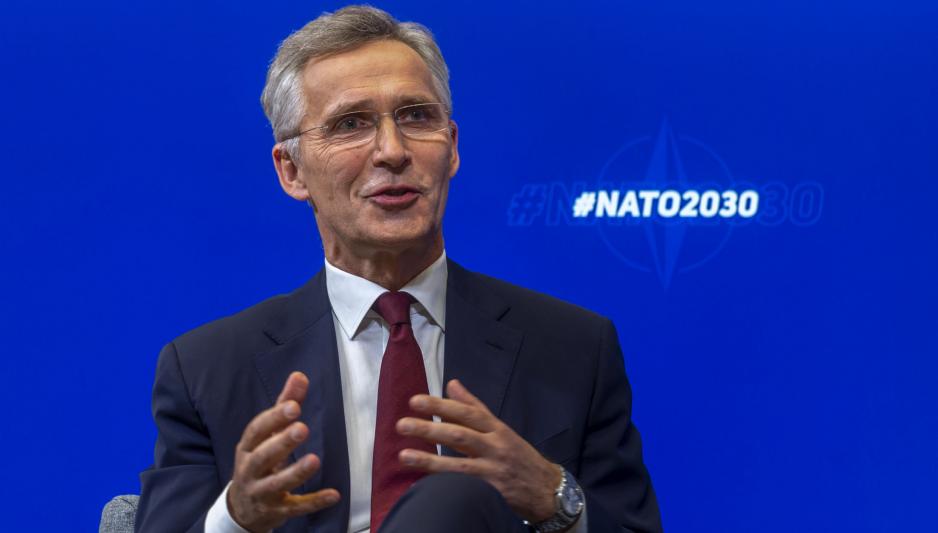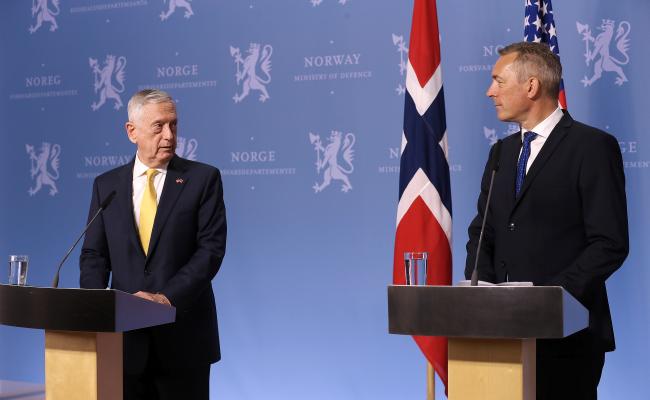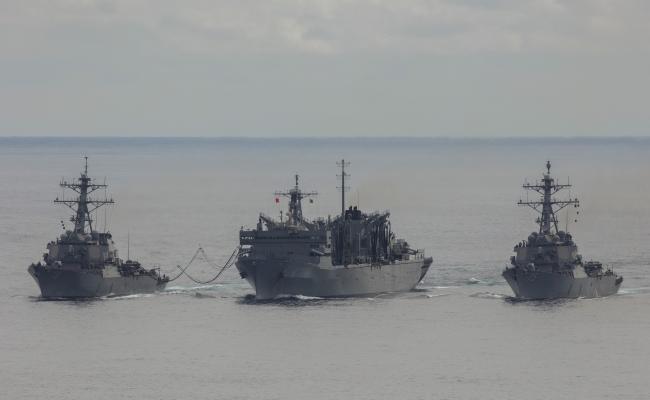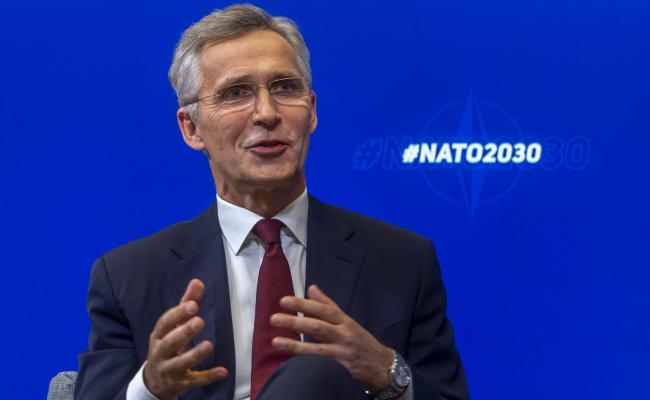The USA Will Not Leave Europe Even Though China is a Priority

NATO Secretary General Jens Stoltenberg has focused on China in a number of statements recently. Professor Øystein Tunsjø at the [Norwegian] Institute for Defence Studies says NATO's increased attention towards China comes after pressure from the United States and adds that the China issue is something on which the alliance needs to agree on. (Photo: NATO).
Increased focus on China and Asia leads to the USA’s having to adjust its military activity, which it is already doing in the High North, explains Professor Øystein Tunsjø at the Norwegian Institute for Defence Studies.
On Monday 14 June, NATO Heads of Government met for a summit in Brussels. On their agenda was a.o. the shaping of NATO’s new strategic concept, “NATO 2030”, Russia, and China.
NATO's strategic concept adopted in 2010 has in many ways been overdue, as the security policy situation has changed a lot over the past decade, explains Utsyn Manager Hedda Bryn Langemyr.
“The Russian annexation of the Crimea, developments in the cyber domain and technology, as well as the emergence of China are all good reasons for revising it”, she says.

Hedda Bryn Langemyr, Manager of UTSYN – Forum for Norwegian Foreign and Security Policy. (Photo: Hege Eilertsen)
Increased focus on China
A recent NATO report states that “NATO should spend much more time, political resources and action on security challenges posed by China”. NATO Secretary General Jens Stoltenberg has said that China “is not an opponent”, but that the country’s rising leads to some serious challenges.
“I strongly believe that NATO should remain a regional alliance, North America and Europe. But I also believe that the threats, and the challenges we face in this region, are more and more global. And the shifting global balance of power, caused by the rise of China, is part of that”, the Secretary General said.
The USA is not leaving Euorpe and our neighborhood. But it will of course adjust things.
Changed pattern of operations
“The backdrop is that the USA for some time now has pressed for increased focus on China. Several European countries, like France and Great Britain, want to be relevant in this context. At the same time, countries like Germany have become more financially dependent on China. The alliance must thus find a balance on this issue”, says Øystein Tunsjø, professor at the Institute for Defence Studies.
What will the increased focus on China mean for Norway and the High North?
“In a more long-term perspective, we have to prepare for the Americans’ being more focused on China in the East Asia region and thus need to prioritize resources in that direction. The USA will not leave Europe nor our neighborhood, however, it will of course adjust things and in fact already has”, he explains.
Tunsjø a.o. points to the US defense doctrine from 2018, which aims to deter opponents globally from initiating conflict through the USA’s being “strategically predictable, but operationally unpredictable”.
Increased threat from both China and Russia, as well as the need for presence in Asia, makes the USA have to prioritize differently, Researcher Ingeborg Bjur at the Institute for Defense Studies explained in an earlier interview with High North News.
“Many present the debate in Norway as if the USA is more present in the High North. The new strategy should perhaps be seen more as a signal about its being less present and prioritizing resources and activities differently. Norway thus has to rethink how to cooperate with the USA and for instance the US Marine Corps”, Tunsjø says.
China in the Arctic?
Stoltenberg has repeatedly mentioned that China also shows an interest in the Arctic. How do you consider that development?
“Being a big power with a global footprint, China has an interest in the region. However, I am skeptical to the threat perception made about China in the Arctic. There is very limited Chinese military activity in the region, nor does it give any meaning for China to use large military resources in the Arctic, as that is not where its security challenges lie. The question is also whether Russia is pleased with China operating militarily off its coastline.”
“At the same time, we also see little Chinese investment in the Arctic. investments are mostly focused on the Yamal Peninsula in Northern Russia. There is also as of yet very little interest in international transit along the Northern Sea Route”, Tunsjø adds.
Not only military challenges
Langemyr of Utsyn argues that the USA and NATO’s attention to and presence in the High North will continue due to the region’s geostrategic significance. The points out that the USA’s focus on Freedom of Navigation still will be key.
“It will be a lasting source of conflict between the USA on the one hand, and Russia on the other, when it comes to the Northeast Passage”, she says.
At the same time, she points out the political effects that may come from a heavier focus on rivalry with China.
“The foundation appears to be laid for China to be pointed out as a new strategic rival, not only in the military area. The USA has an ongoing trade war with China, and there is a kind of technological race. If NATO were to take on a strong focus on China, it is likely for it to have a spillover effect into other policy areas in which Norway would perhaps consider itself better served with better cooperation. China is an important trade partner for Norway which, like many other countries, depends on China to solve many of the global crises, such as the climate issue. Many European states consider themselves best served with a somewhat normal relation to China. Such a strategy may complicate those relations”, Langemyr says.
“Must revitalize”
“NATO needs to revitalize for the 21st century in which China has become the biggest challenger of the USA, which is the most important actor in NATO. However, that does not necessarily mean that NATO moves to East Asia, but rather that it has to find areas in which it can cooperate better with the USA to contain China”, Tunsjø adds.
“NATO must become a defense alliance that most likely will have to take on some new tasks, because China does not represent a direct military threat to Europe, however, it rather represents challenges in a series of areas such as in the cyber domain and investments in critical infrastructure. NATO must find out how it is to contribute in these new areas.”
Also read
This article was originally published in Norwegian and has been translated by HNN's Elisabeth Bergquist.





